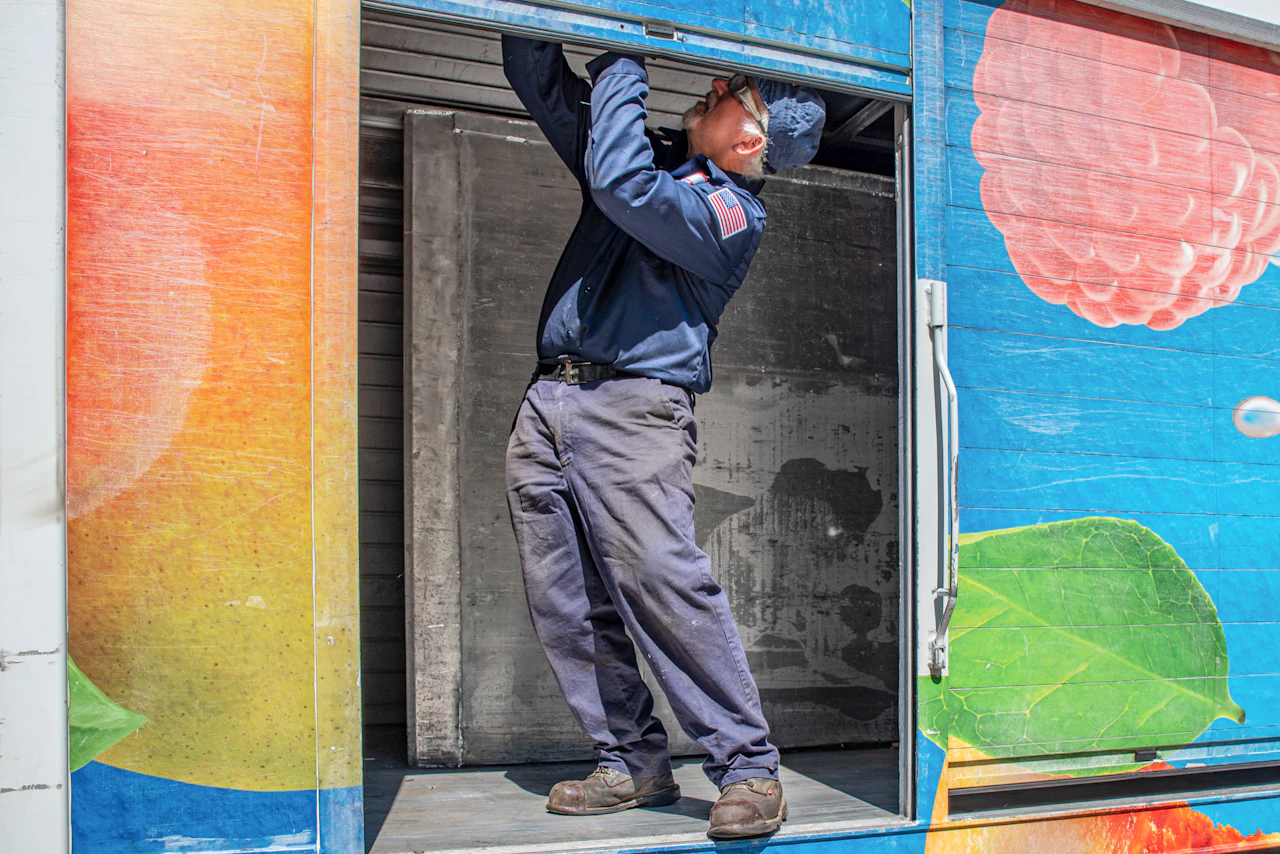5 Reefer Maintenance Mistakes That Can Spoil Your Cargo

5 Reefer Maintenance Mistakes That Can Spoil Your Cargo
When it comes to hauling temperature-sensitive goods, like produce, meat, dairy, or pharmaceuticals, your refrigerated trailer, or reefer unit, isn’t just a convenience. It’s the backbone of your operation. A minor misstep in maintenance can mean spoiled cargo, rejected loads, and lost revenue—not to mention a bruised reputation with brokers and shippers.
In Darlington, South Carolina, where sweltering summers and humidity dominate much of the year, reefer maintenance mistakes are especially costly. If your unit can't hold temp, condensation builds up, or airflow is compromised, you could be out thousands in a matter of hours.
Let’s take a closer look at the five most common reefer maintenance mistakes—and how to avoid them before they spoil your cargo and your business.
1. Neglecting to Check Airflow Inside the Trailer
One of the most overlooked aspects of reefer maintenance is internal airflow. Even if your unit is running perfectly, improper airflow inside the trailer can sabotage the entire trip. Blocked return air vents or poor cargo loading can restrict circulation, causing uneven temperatures throughout the load.
If you're stacking pallets too tightly or placing cargo directly against the walls, you’re cutting off the very circulation your reefer needs to keep things consistent. Warm spots form, and before long, you’ve got product spoilage—even when the trailer temp says everything’s fine.
Routine checks should include:
- Inspecting return and discharge air ducts
- Making sure nothing is blocking the floor channels
- Verifying that cargo is loaded according to best airflow practices
2. Ignoring Routine Fuel Filter and Water Separator Maintenance
Fuel quality plays a huge role in reefer reliability. Diesel-powered refrigeration units rely on clean, uncontaminated fuel to function properly. One of the biggest mistakes we see at R & N Towing in Darlington is neglecting fuel filter and water separator maintenance.
Over time, moisture builds up in fuel tanks, especially in humid climates like the Carolinas. That moisture creates diesel contamination, which can lead to clogged filters, poor combustion, and even complete unit shutdown mid-haul.
Even the best refrigeration units won’t survive long on bad fuel. Keeping your fuel system clean is one of the cheapest and most effective ways to avoid costly breakdowns.
To avoid that fate:
- Drain the water separator regularly, especially during seasonal changes
- Replace fuel filters on schedule or sooner if you're running biodiesel
- Inspect fuel lines and tanks for algae or sludge buildup
3. Skipping Pre-Trip Inspections
A rushed departure is one of the most dangerous times for a reefer hauler. If you’re skipping your pre-trip checks, you’re rolling the dice with every load. Here's what you should never overlook before hitting the road:
- Check temperature settings: Ensure it’s set to continuous or cycle mode as required.
- Inspect belts and hoses: Look for cracks, wear, or looseness in drive belts and coolant lines.
- Examine condenser and evaporator coils: Clean if dirty or obstructed.
- Test defrost system: Make sure it cycles properly and drains are clear.
- Verify alarm history: A quick check of the controller can flag recent or recurring issues.
- Top off fuel: Low fuel can cause the unit to shut down mid-haul.
Skipping these basics can turn a simple delivery into a cargo claim and hours of lost time. Spend the 10 extra minutes now or spend 10 extra hours dealing with a spoiled load later.
4. Failing to Maintain Door Seals and Insulation
Your reefer’s insulation and door seals are its last line of defense. Even if the unit itself is operating flawlessly, compromised seals will let warm, humid air seep in—and cool, dry air leak out. This not only forces your system to work harder (burning more fuel), but it also increases the risk of temperature swings that ruin your cargo.
You should inspect seals weekly and every time the trailer is washed. If the seals don’t spring back when pressed or you see visible gaps, it’s time to replace them. In hot, humid climates like South Carolina, seal failure is more than a nuisance—it’s a profit killer.
Common issues we see include:
- Torn or compressed door seals
- Cracked or missing insulation panels
- Loose latch mechanisms causing gaps in the seal
- Condensation and mold buildup from warm air infiltration
5. Not Tracking or Logging Reefer Data
Data is your best defense against spoilage claims. If you’re not tracking your reefer unit’s performance, you have no way to prove your cargo stayed within the required temperature range—and that leaves you at the mercy of shippers, receivers, and insurance adjusters.
Here’s what you should always be logging:
- Setpoint temperatures and actual temps throughout the trip
- Duration of continuous vs. cycle mode operation
- Alarm codes or unit faults recorded during transit
- Start, stop, and fuel times for multi-stop runs
- Trailer temp readings at pickup and delivery
Prevent Reefer Mistakes Before They Cost You
Reefer maintenance isn’t just about keeping your equipment running—it’s about protecting your cargo, your contracts, and your bottom line. From airflow and fuel quality to door seals and data logging, each step plays a critical role in keeping your load at the perfect temp from pickup to drop-off.
Here in Darlington, SC, where heat and humidity are relentless, small mistakes can quickly become costly failures. At R & N Towing Truck & Trailer Repair, we help drivers and fleets stay ahead of breakdowns with proactive reefer maintenance and inspection services.
Whether you're hauling chicken out of Florence or pharmaceuticals through Columbia, make sure your reefer is ready for the road—and ready to protect your cargo.
